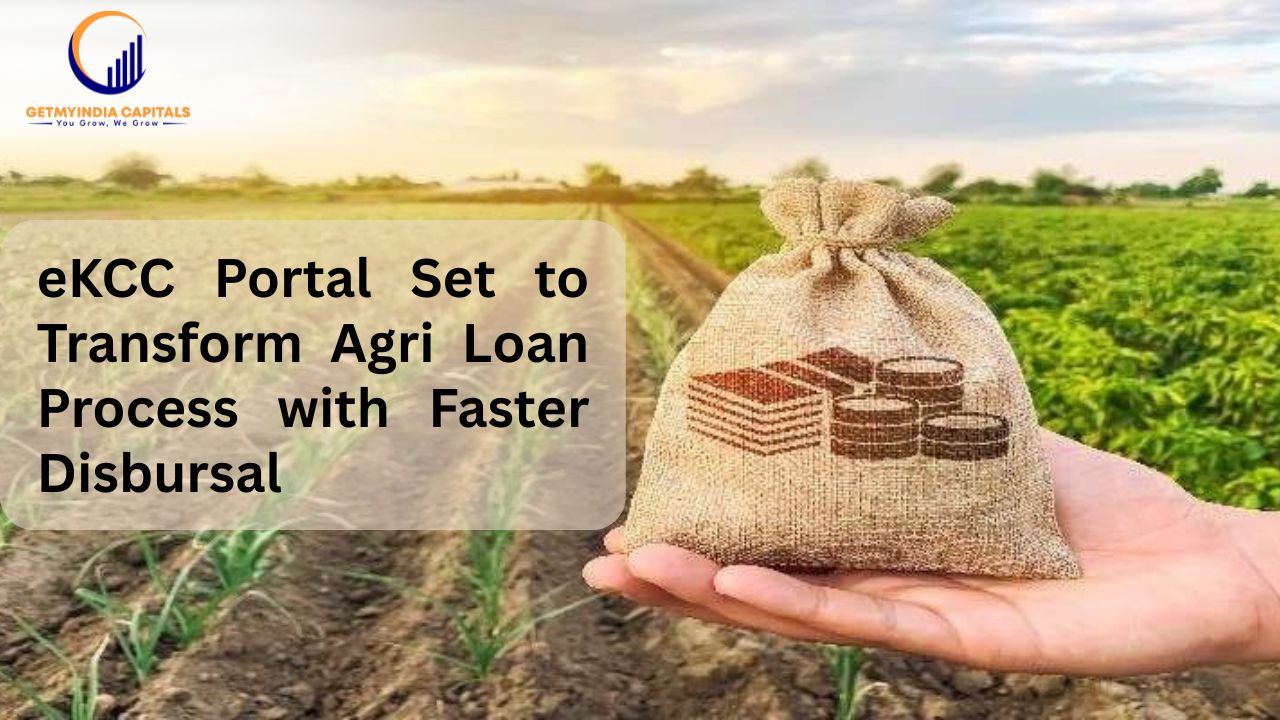Introduction
In a significant push towards agricultural digitization and financial inclusion, the National Bank for Agriculture and Rural Development (NABARD) has launched the eKisanCredit (eKCC) portal, developed in collaboration with Chennai-based fintech firm 24×7 Moneyworks Consulting. The initiative aims to streamline and accelerate the disbursal of agricultural credit to Kisan Credit Card (KCC) holders, particularly targeting small and marginal farmers across India.
Fast-Tracking Agricultural Credit
Traditionally, the loan approval process for KCC holders has been plagued by inefficiencies. Farmers are often required to visit rural bank branches multiple times, endure a paper-heavy process, and wait for three to four weeks before receiving loan sanctions. The newly launched eKCC portal aims to eliminate these bottlenecks by digitizing the entire loan application and disbursal process, thereby significantly reducing turnaround time and operational costs.
“The eKCC has demonstrated the potential to improve access, transparency, and efficiency in dispensing agricultural credit,” stated Shaji K.V., Chairman of NABARD. “This will help cooperative banks, Primary Agricultural Credit Societies (PACS), and Regional Rural Banks (RRBs) deliver faster, more transparent, and inclusive credit services to farmers.”
Collaborative Innovation
The portal’s development underscores NABARD’s growing interest in leveraging fintech solutions for rural banking. In a notable move, NABARD recently acquired a 10% equity stake in 24×7 Moneyworks Consulting for an undisclosed amount, reinforcing its commitment to long-term collaboration in building digital infrastructure for rural finance.
Currently, the eKCC portal is being piloted across six states, with plans for rapid expansion. The platform is specifically designed to serve Rural Cooperative Banks (RCBs) and Regional Rural Banks (RRBs), which often face technological and financial constraints in adopting digital systems. Unlike commercial banks that have significantly digitized their services, rural banking institutions have lagged behind due to high implementation costs and limited tech capacity.
How the eKCC Works ?
The eKCC portal incorporates cutting-edge technologies and digital frameworks to ensure secure, fast, and accessible services for farmers. It leverages the Unified Lending Interface developed by the Reserve Bank Innovation Hub (RBIH) to link digital land records. It also utilizes platforms from the Centre for Development of Advanced Computing (CDAC) for Aadhaar-based authentication, eKYC, digital signatures, and Aadhaar data vaulting.
Farmers can now submit their loan applications digitally, without the need to physically visit bank branches. This digital interface ensures that loans are sanctioned within a much shorter timeframe, thus enabling farmers to access timely credit for agricultural inputs such as seeds, fertilizers, pesticides, and other crop production needs.
Scope and Impact
India currently has around 77.1 million operational KCC holders with landholdings. Of these, about 4.44 million KCCs are for animal husbandry and 1.24 lakh for fisheries-related activities. NABARD officials believe that the eKCC platform has the potential to transform the way these farmers access credit, making it more timely, transparent, and cost-effective.
According to Ajay Sood, Deputy Managing Director of NABARD, the pilot in six states has already shown positive results in terms of reducing loan processing time and lowering operational overheads. “By using digital platforms, agri-loans to KCC holders can be sanctioned in a shorter time,” he stated.
The portal will soon be expanded to include additional financial products beyond crop loans. These include credit facilities for dairy, fisheries, and investment loans under allied agricultural sectors. It is also slated for integration with the Kisan Rin Portal operated by the Ministry of Agriculture for automated interest subvention processing.
The Larger Financial Landscape
In FY25, India’s commercial banks, cooperatives, and RRBs disbursed over ₹28.98 lakh crore in agricultural credit. Of this, about 60% went toward short-term crop loans, while the remaining was allocated to investment loans in agriculture and allied sectors. With the government’s recent announcement to raise the agri-credit limit to ₹5 lakh annually for FY26, the demand for efficient credit disbursal mechanisms is set to grow further.
Under the Modified Interest Subvention Scheme, farmers are provided loans of up to ₹3 lakh at 7% annual interest. An additional 3% interest subvention is provided for prompt repayment, bringing the effective interest rate down to 4%. With the introduction of the eKCC portal, such subsidized credit will become even more accessible to those who need it most.
Looking Ahead
The eKCC portal is a critical step towards bridging the digital divide in India’s agricultural finance sector. With plans underway to onboard all RCBs and RRBs, the platform is expected to become a comprehensive digital ecosystem for agri-credit. It not only promises enhanced efficiency but also contributes to the broader national goals of rural empowerment, financial inclusion, and technology-driven governance.
As NABARD continues to push the envelope on rural fintech, the eKCC portal stands out as a transformative innovation—offering hope, efficiency, and empowerment to millions of Indian farmers.
GetMyIndia.com RaysVeda.com GetMyStartup.com LawCanal.com ABHAYRAY.COM ZinCob.com

